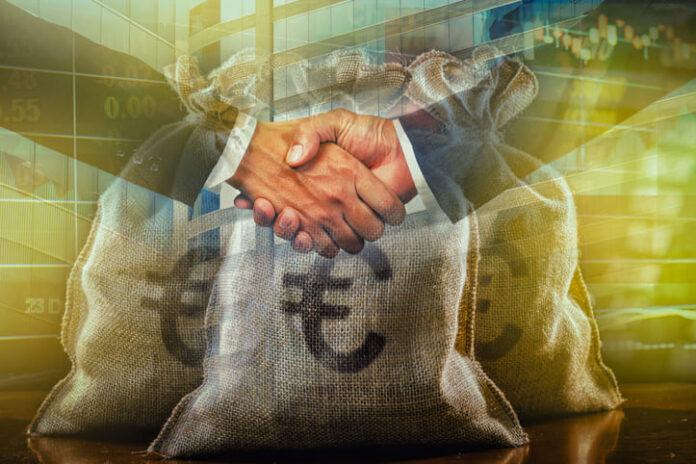
The European economy could be set to experience a significant restructuring following President Trump’s “Liberation Day” tariffs announced on April 2, 2025. While Trump has since instituted a 90-day pause, these sweeping tariffs, which include a baseline 10% on all imports and a 20% rate specifically for the European Union, have sent shockwaves through global markets and prompted European leaders to accelerate plans for greater economic independence from the United States.
For investors seeking to capitalize on emerging European opportunities amidst this volatility, the type of equities-based financing offered by firms like EquitiesFirst, formally known as Equities First Holdings could provide an avenue to access capital without liquidating existing portfolio positions—a crucial advantage in uncertain markets.
A Shifting Reality
This continental pivot accelerated dramatically after Trump’s tariff announcement. The reciprocal tariffs sparked immediate volatility, with economists warning they could reignite inflation, raise recession risks, and potentially increase costs for average U.S. families by thousands of dollars, and these consequences would have dramatic downstream impacts on U.S. trading partners. European indices initially plummeted on the news, particularly export-dependent markets like Germany’s DAX and France’s CAC.
The EU’s announcement of a €150 billion ($163 billion) Security Action for Europe (SAFE) fund in March 2025 marked a pivotal moment in European strategic autonomy. This defense fund, which notably excludes U.S. and UK arms manufacturers, signaled Europe’s determination to reduce dependence on American security frameworks while opening participation to Ukraine.
“European markets are experiencing a profound realignment that creates unique entry points for investors,” says EquitiesFirst CEO Al Christy. “The combination of defense spending, technological innovation, and trade diversification presents opportunities not seen in decades.”
Defense stocks have surged significantly since the EU’s announcement of its rearmament plans. German defense manufacturer Rheinmetall saw its stock price increase nearly 195% over the past year, with further gains following statements from incoming German Chancellor Friedrich Merz about seeking independence from U.S. contributions to NATO defense.
As Europe looks to pour billions into defense spending, many regional leaders are pushing for money to be spent locally, with the European Commission calling on member states to “spend better, work together, and prioritise European companies.” The European Commission has identified critical areas requiring investment, including air defense, military mobility, drones, and strategic enablers.
European asset managers are reconsidering their policies on defense investments, with Legal & General, Britain’s largest investor, planning to increase exposure to the sector, noting its appeal has “risen dramatically.”
EquitiesFirst’s equities-based financing can provide flexibility during these periods of market volatility. This financing approach allows borrowers to retain long-term positions while accessing liquidity financed against equity holdings.
“European markets are experiencing unprecedented volatility, yet some investors are willing to take a longer view,” says Christy Jr.
The Path Forward for Europe’s Economy
Following Trump’s tariff announcement, Spain’s Economy Minister Carlos Cuerpo described the 20% tariffs against the EU as “unfair and unjustified” while indicating Spain’s preparedness to protect its companies and consumers. These tensions highlight Europe’s push toward greater independence.
“Anything that disrupts the global trading system is a threat to the U.K. because we are a much more globally orientated trading economy than some partners,” U.K. Jonathan Reynolds told Times Radio.
Italian Prime Minister Giorgia Meloni was also critical of the tariffs but pointed to the need to avoid a disastrous trade war.
“The tariffs are wrong and not in the interest of either party,” said Meloni. “We will do everything we can to work on an agreement with the U.S., with the aim of averting a trade war that would inevitably weaken the West in favor of other global players.”
She advised business leaders involved in Italy’s food and drinks industry that the EU may need to adopt “appropriate responses.”
This level of policy tension could be indicative of a European push toward greater economic independence.
According to analysis from the Center for Strategic and International Studies, Trump’s April 2 tariffs, combined with previous tariffs on steel, aluminum, and cars, could reduce U.S. GDP by approximately 1% (roughly $300 billion in annual output loss at 2024 GDP levels) while increasing prices by 9.5%. JP Morgan raised its estimate of global recession probability from 40% to 60% by year end.
Europe stands at a pivotal economic crossroads, with Trump’s tariffs accelerating shifts that were already in motion, but not ruling out fundamental existing trade relationships with the U.S.
For investors with existing portfolios, EquitiesFirst’s financing offers a strategic way to participate in this transformation without disrupting long-term investment strategies. By leveraging existing assets, investors can maintain current positions while gaining exposure to Europe’s changing economic environment.
“The next decade will reshape Europe’s position in the global economy,” says Christy Jr. “Investors who can secure financing now will have flexibility to adapt to the continent’s economic development.”
Disclaimer: This article contains sponsored marketing content. It is intended for promotional purposes and should not be considered as an endorsement or recommendation by our website. Readers are encouraged to conduct their own research and exercise their own judgment before making any decisions based on the information provided in this article.
#European #Opportunities #EquitiesFirst #Financing